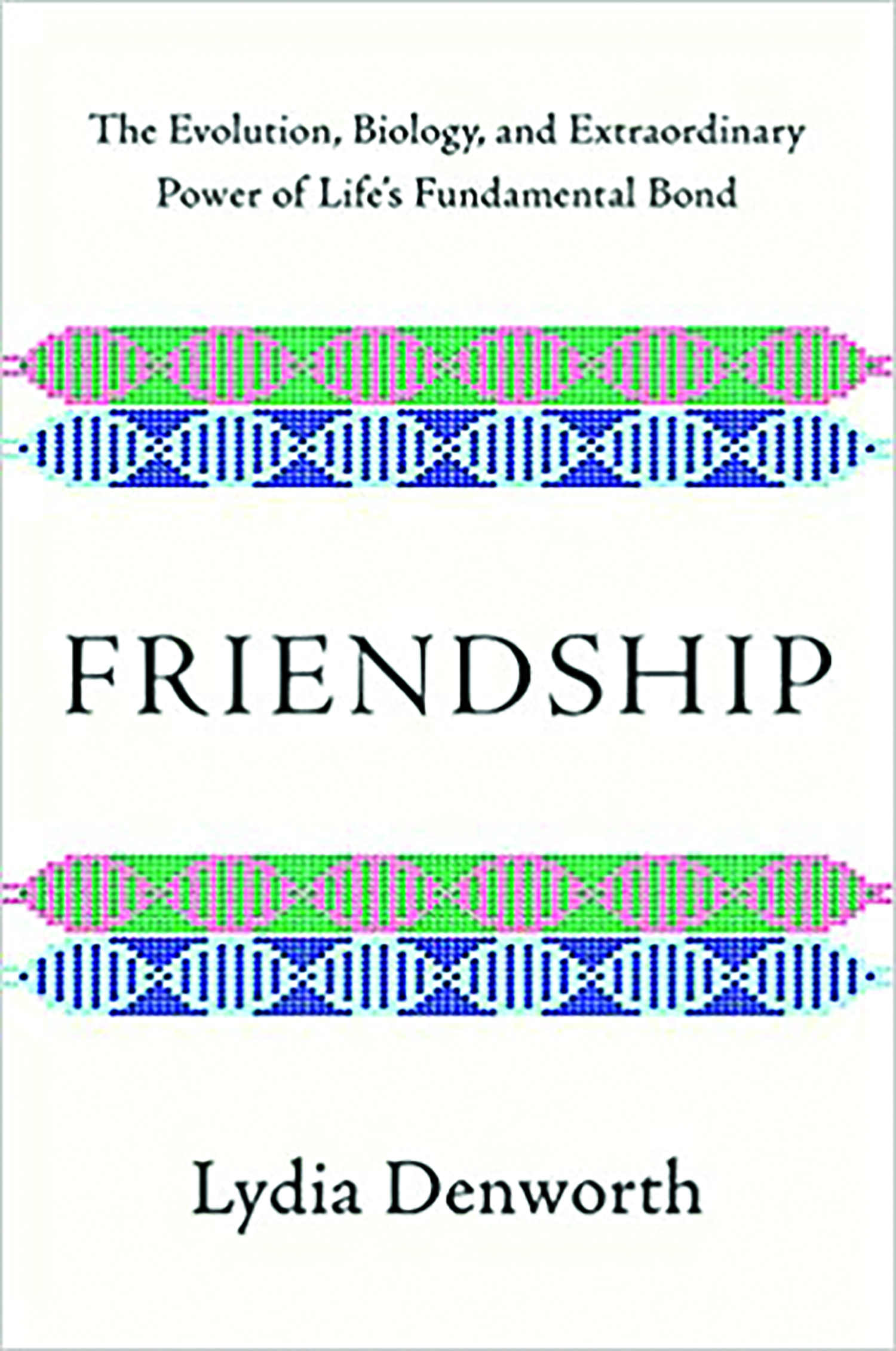Reading the headlines, one routinely gets the sense that humans are not a very convivial bunch. War, terrorism, crime, and other varieties of violence and conflict can seem like our default setting. But in her new book, Friendship, the science journalist Lydia Denworth brings a more hopeful message. At their most basic level, she argues, people are wired to connect with each other.
It’s obvious why sexually reproducing species are driven to find a mate. The biological rationale for intimacy between parents and offspring is clear as well, since the young need nurturing to survive and thrive. But what about the connections between people outside the confines of courtship and parenthood? Denworth, surveying the research, says that we’re designed for companionship as well as competition.
A contributing editor for Scientific American, Denworth typically writes about the brain. “But recently, it has become evident that there is an equally important map to be made extending out from the brain. Invisible but essential, it’s the web of connections we forge with others, the networks of individuals whose actions and emotions affect us just as much as we affect them,” she writes. “We may be separate beings, but we are deeply bound, as if there were truly silken threads tying us all together physiologically.”

She cites multiple studies affirming the centrality of friendship to human development. Generally speaking, they support the conclusion of University of California, Los Angeles psychologist Shelley Taylor, who argued in a 2002 book that friendship among humans has been a key part of their evolutionary success. In addition to our “fight-or-flight” response, a kind of continual battle footing in the face of threats, we have also developed a proclivity to “tend and befriend.” As Taylor puts it, the “tending instinct is every bit as tenacious as our more aggressive, selfish side.”
Denworth gets a definition of human friendships from the evolutionary scholar Joan Silk, who describes them as “intimate, supportive, egalitarian relationships.” Although we often think of it primarily as a subject for greeting cards, friendship, according to Denworth, is “actually is a matter of life and death.” She cites the work of the psychologist Julianne Holt-Lunstad, who combed 148 studies involving 308,000 people and found “a 50% increased likelihood of survival for those with stronger social relationships.” And “loneliness,” Denworth writes, “is as deadly as cigarette smoking or obesity.”
This shouldn’t be too surprising, given that fellowship is apparently important for many species. “Friendship or something approaching it has recently been identified in a surprising number of other creatures, from dolphins to zebras,” says Denworth. “Even zebra fish exhibit interesting social behavior. They show reduced levels of fear when they can smell familiar fish and even lower levels if they can see their ‘friends.’”
Although Denworth intends her book to be primarily a discussion of the evolution and biology of friendship, one occasionally wishes that she would have included more wisdom from outside the sciences. Commentators as varied as Horace, Henry David Thoreau, and Virginia Woolf have written profound meditations on friendship. As Diane Ackerman has demonstrated in A Natural History of the Senses and A Natural History of Love, celebrated poets, novelists, and essayists have often deftly intuited truths about the human condition later borne out by scientific research. On basic questions of existence, art and science mutually enrich one another.
When Denworth mentions a thinker beyond the laboratory or field study, she tends to do it glancingly, which creates challenges of its own. She quotes this line from C.S. Lewis, for example, to make the point that friendship has often been considered a cultural construct rather than a biological need: “Friendship is unnecessary, like philosophy, like art … It has no survival value; rather it is one of those things which give value to survival.” Yet Lewis’s observation comes from The Four Loves, in which he persuasively argued that friendship is integral to a fulfilled life. His complaint was that modern life ignores this basic fact.
In one of her best chapters, Denworth picks apart data on whether digital technology has helped or hurt friendship. She decides, perhaps predictably, that it’s a mixed bag. People with strong social connections offline tend to expand them online. Those with few friends might make things worse by hanging out on the internet, though Denworth notes that the current research is inconclusive. She is also unpersuaded by reports of an epidemic of loneliness: “For every study that finds a rise in loneliness,” she writes, “there is another showing an increase in connection.” And despite contemporary worries about a breakdown in healthy social connections, she concludes that “friendship, real friendship, hasn’t changed much. It is alive and well, even thriving in some senses.”
Denworth blends her reportage with occasional asides about her friendships, something not all reviewers of her book have liked. But her anecdotes, while largely unremarkable, are a useful reminder that each friendship is different, perhaps impossible for any scientist to parse completely.
Michel de Montaigne, the seminal French essayist who makes a couple of cameo appearances in Friendship, famously tried to explain what he shared with his best friend, Etienne de la Boetie. “If you should press me to give the reason why I loved him,” wrote Montaigne, “I feel I could only answer by saying: because it was he, because it was I!”
Danny Heitman is a columnist for the Baton Rouge Advocate and the author of A Summer of Birds: John James Audubon at Oakley House, which will be reissued in February 2020 in a new paperback edition.
